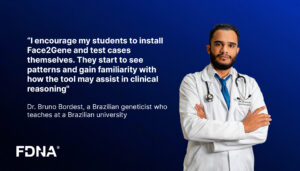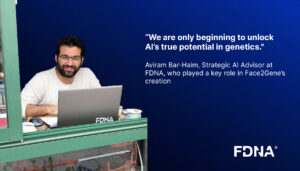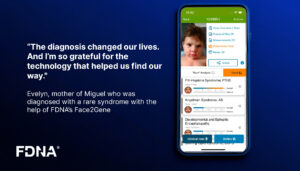Jun 02, 2017
NEW YORK (GenomeWeb) – “A number of research groups have explored how automated facial image analysis technology can help with the differential diagnosis of inherited diseases, including prioritizing exome sequencing variants for analysis and grouping patients with mutations in different genes.
At the European Society of Human Genetics annual meeting in Copenhagen this week, several groups presented projects that involved automated facial image analysis. Most teams have been collaborating with FDNA, a Boston-based company that has commercialized facial recognition software for clinicians and researchers in genetics. In addition, a team from the University of Oxford in the UK has launched a project, called Minerva & Me, that uses a different facial analysis software.
Researchers at the Institute of Medical Genetics and Human Genetics at Charité University Medicine Berlin have been testing FDNA’s technology in a study called Prioritization of Exome Data by Image Analysis (PEDIA). Last year at ESHG, the group presented early results from that project. “


